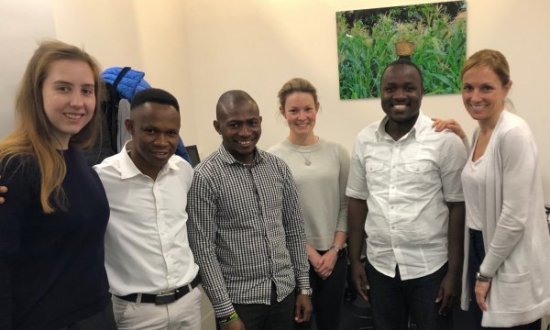Our work
We are establishing the first global data repository for clinical, epidemiological, and laboratory data on Ebola virus disease, to enable the health, research and humanitarian communities to maximise resources, prioritise research and build on existing knowledge to benefit Ebola-affected countries. Scientific advances will be realised only when existing data, analyses and results are shared, so that each outcome can be used to inform the next. The technical, governance, and ethical framework have been designed to promote access to data for research while protecting the rights and privacy of the people and communities from where the data originated.

Project objectives
The core objective of this project is to deliver a research theme where all available Ebola data are standardised to a uniform structure and made available for research.
This theme will also serve to:
- Support researchers in affected countries to make use of the data for research analysis;
- Address the research priorities of the communities affected by Ebola to improve treatment and outbreak response;
- Ensure that the communities affected by Ebola have access to the benefits which result from research produced with data;
- Establish an appropriate data access process which can be implemented to reduce the impact of future outbreaks.
Outputs
By pooling data, we can optimise the statistical power of research and answer key questions on the management of Ebola infections that it would be difficult to address with a single dataset. We will provide the scientific, health and research communities and public health authorities equitable access to data through a timely, transparent sharing process, which respects the interests of those who collect the data.
Our aim is to contribute to the research capacity of countries affected by Ebola. We are offering support to researchers from the countries of data origin through training and mentorship in skills such as data management, statistical analysis and manuscript writing, so that they are able to undertake research using data from this theme.
Through the development of this data platform, the partners will:
- Establish a multi-disciplinary collaboration equipped to deliver policy-changing evidence that supports patient care
- Reduce the impact of future outbreaks
- Expand activities to address the health priorities of Ebola-affected countries.


